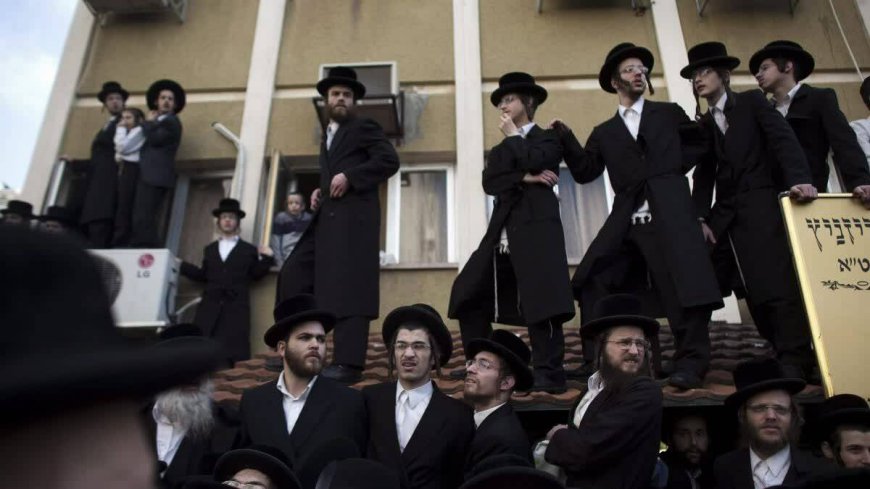Haredi Jews and the Power Dynamics in Israeli Politics
Haredi Jews and the Power Dynamics in Israeli Politics

Haredi Jews represent the fundamentalist faction within Orthodox Judaism. They assert that their beliefs are directly derived from Moses and the Torah, which were revealed to him at Mount Sinai. Central to Haredi ideology is the concept of absolute gender segregation, whereby women are expected to dress modestly, covering their elbows and knees, and to sit or stand separately from men in public spaces. Haredi men adhere to a distinctive attire consisting of white shirts, black pants, long black coats, and black hats, reminiscent of the fashion worn by Jews in 18th-century Russia and Poland. Notably, many Haredi married women opt to wear wigs as a means of concealing their natural hair.
Haredi Jews typically gravitate towards residing in cities or specific neighborhoods where they can maintain a lifestyle consistent with their religious practices. Their preference for such concentrated living arrangements has presented challenges within the Zionist regime, as they serve as a minority with a rather bizarre way of life. Although currently constituting only 13% of the Israeli population, the Haredi community displays a population growth rate twice that of the secular population due to their higher fertility rate and early marriage and childbirth. Consequently, projections suggest that their population could double every 16 years. A prominent Zionist website, Gallops, predicts that within 20 years, Haredi Jews could comprise one-fifth of Israel's population and, within four decades, nearly one-third, making them the largest minority group in the country, surpassing even the Arab community.
One of the primary concerns for the Zionist regime revolves around the issue of social division, a challenge that has persistently plagued the regime. Given its construct as a fictitious and non-historical entity, the Zionist regime encompasses a diverse array of immigrant groups hailing from various parts of the world. Consequently, the social disparities and differences between these immigrant groups settling in the occupied territories pose a potential threat to the regime. In this context, the Haredi minority, with its unique attitudes and perspectives, emerges as a key factor contributing to the creation of social divisions within the occupied territories. The Haredi community seeks to establish a government based on racial and Judaic principles. Their distinctive behavioral characteristics have led to their segregation from other Jewish communities in the occupied territories, resulting in separate educational institutions.
Haredis consistently oppose peace initiatives with the Palestinians, the establishment of a two-state solution, and the so-called idea of a "democratic Israel. Their culture and beliefs have fostered a significant divide between the Haredi community and other residents of the occupied lands. They distance themselves from the educational centers of the Zionist regime, which aim to instill Israeli identity in children, further perpetuating their separation from the identity the regime aims to promote and institutionalize. Moreover, their exemption from military service further hinders their integration into the population structure of the occupied territories. These factors collectively imply that an increase in the Haredi population and their heightened influence in policymaking could potentially reshape the current landscape of Israel, challenging the existing Zionist regime.
A pertinent example of this dynamic can be observed in the present-day right-wing government led by Benjamin Netanyahu, which has formed alliances with Haredi movements to secure electoral victories. Consequently, the government finds itself subject to the demands and pressures exerted by these Haredi factions. Notably, recent instances include the passage of the "military law," which Haredi leaders have threatened to block unless it aligns with their interests. The Haredi movements, represented by members of the Zionist Knesset, have also warned that they will withhold support for the budget unless it includes additional funding for Haredi-related education. These instances highlight the influence and leverage wielded by the Haredi community within the political landscape of the Zionist regime. Given the historical challenges posed by the Haredi community to the Zionist regime, concerns regarding their population growth in the coming years and the subsequent shift in the population structure of the occupied territories towards Haredi dominance have become increasingly worrisome for Zionist authorities.













































